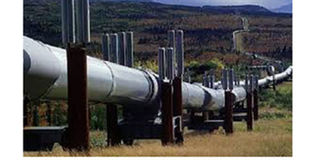Can govt give more information about the planned oil pipeline?

An oil pipeline. FILE PHOTO
What you need to know:
- The 1,445km East Africa Crude Oil Pipeline (EACOP) that is valued at $3.55b and promises massive economic fortunes (even if only 20 per cent of it will occupy Ugandan territory), has not received the attention it deserves.
- Discussions about Uganda’s oil sector and related infrastructural developments have largely been an exclusive club’s affair.
Reference is made to an article by Mary Karooro Okurut in The New Vision of November 21, titled ‘Oil Pipeline: Uganda has cause for optimism.’ First, I would like to recognise the potential Uganda and Tanzania’s extractive resources have to trigger economic growth, alleviate poverty and address inequality, enabling both countries to fulfil their respective visions.
It is unfortunate, as Ms Karooro rightly pointed out, that the 1,445km East Africa Crude Oil Pipeline (EACOP) that is valued at $3.55b and promises massive economic fortunes (even if only 20 per cent of it will occupy Ugandan territory), has not received the attention it deserves.
The primary reason for this is that discussions about Uganda’s oil sector and related infrastructural developments have largely been an exclusive club’s affair, whose membership includes technical persons (ministries of Energy and Finance), foreign investors and the Office of the President.
Even when oil is a national resource, I am sure you would not hear people in your constituency in Bushenyi talk about it. The discussions are localised to Hoima and Buliisa where people are directly affected as their land is required for oil development and there are hopes for jobs. A number of times when oil discussion dominates public debate, is when there is a scandal, the latest being the Shs6b a few government workers rewarded themselves for work they are paid to do. Uganda needs to do better in informing her citizens about oil-related issues.
There are heightened expectations such as those expressed by Ms Karooro, that the project will bring huge benefits in terms of jobs and economic multipliers. While I appreciate some people will earn income during the construction of the EACOP, can we look at the bigger picture? Apart from casual labourers Ms Karooro talked about, what other opportunities are there? Where are we buying materials from? Shall we use cement from Uganda or China? What about the nails and screws?
Uganda decided long ago to construct an oil pipeline. Yet hardly any Ugandans have been equipped with necessary skills in pipeline construction. Is there a group of welders from Katwe, for example, that meet the certification criteria to work on the pipeline, the oil refinery or central processing plants? What local content actions has government taken to ensure meaningful participation in the sector?
[email protected]




